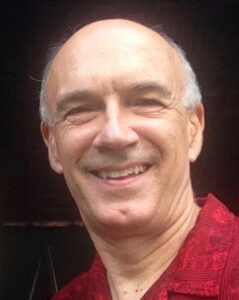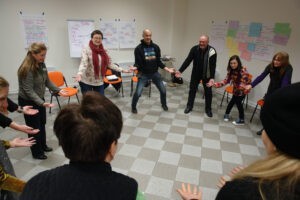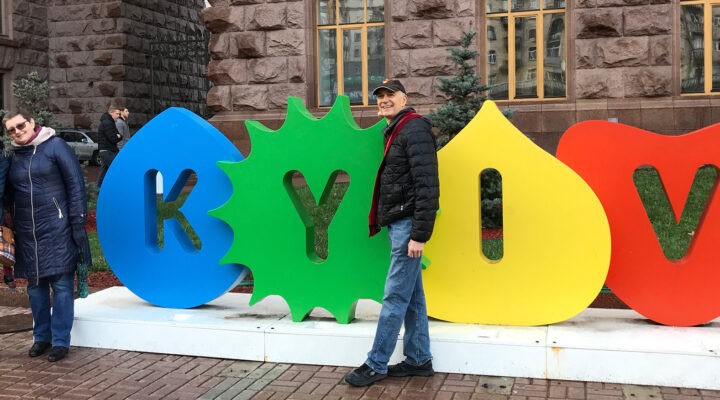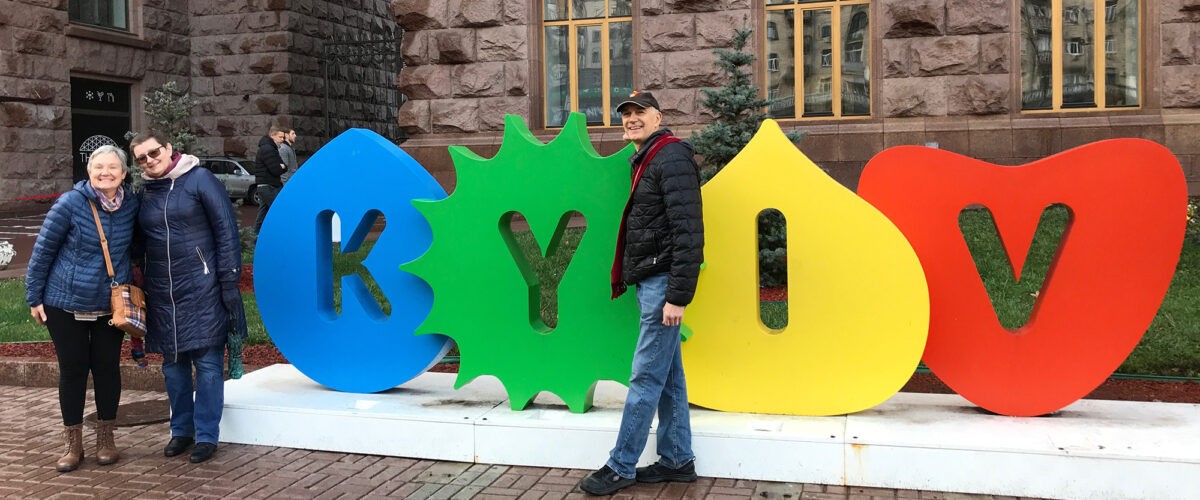People of faith could play an important role in resolving the ongoing war between Russia and Ukraine, a Baptist author and peacemaker said.
“I have seen that mediation can be stimulated by non-governmental actors, including religious people. I have seen conflicts where Baptists, Mennonites, Quakers and others played a significant role in creating a safe space for political folks to talk,” said Daniel Buttry, a retired global consultant for peace and justice for International Ministries of the American Baptist Churches USA.
In addition to sharing a culture and history, the people of Russia and Ukraine also share a spiritual bond through Orthodox Christianity, he said. While formal relations between churches in the two countries have been strained, the historical connection could be enough to inspire peace talks.

Daniel Buttry
“This could open up back channels where things could be discussed secretly without the pressure of the media seeing everything. This would allow more creative approaches to be explored. I have seen that happen in Myanmar, Lebanon and northeast India,” he said.
During his service with International Ministries, Buttry and his wife, Sharon, led conflict resolution workshops and training around the world, including multiple sessions in Ukraine. He is the author of several books, including Peace Warrior: A Memoir from the Front and Blessed Are the Peacemakers, and mediation manuals such as Peace Ministry: A Handbook for Local Churches.
He also helped launch Global Peace Warriors, a loose network of peacemaking consultants who contribute to a website that includes a blog and links to training guides on topics such as conflict resolution, mediation, diversity, power dynamics and community organizing.
Whether in Europe, Asia or the Middle East, advocating for peace involves much more than passively waiting for aggressors to relent or be defeated in battle, Buttry said. Instead, Ukrainians and other oppressed groups must seek to become “peace warriors.”
“It requires strategic thinking, courage, creativity and a willingness to sacrifice self to create a warrior culture that can be baptized in the nonviolence of Jesus and be brought into waging peace.”

Before the current war, Buttry leads a training event in Dnipro.
“Waging peace” — a term Buttry attributes to the late Baptist free-press champion Walker Knight — is not about letting the aggressor set the agenda and staging protests in response, but trying to predict the arc of the conflict and then get ahead of it proactively, he explained. “Resisting evil with good is one way of waging peace.”
That method already is emerging in Ukraine. “We have seen Ukrainians who are taking street and road signs down. Even with GPS, Russians are getting disoriented enough that the Russian army is trying to recruit people who know the roads. This is a simple, nonviolent action that has had an impact on the Russian army.”
Reports also have emerged of Ukrainian troops treating Russian prisoners with compassion, including one story of a captured soldier being allowed to call his wife in Russia, Buttry said.
“They were also serving him tea. These things are also examples of nonviolent resistance, and at some point those kinds of things can start changing people’s lives. We have also seen, in other parts of the world, where these kinds of actions have stripped away the power even of strong military forces.”
Buttry recently blogged about leading an intensive class at the Ukraine Evangelical Theological Seminary and what it was like to have students who already had been involved in previous protest movements against Russia. He predicted the nightmare that nonviolent resistance will likely pose for Russian President Vladimir Putin should his forces come to occupy Ukraine or even just portions of it.
“Even when a military occupation is quickly achieved, that doesn’t mean the invading power has won. People can resist nonviolently over a long time.”
“The horrific violence of the invasion is filling the news right now, but even when a military occupation is quickly achieved that doesn’t mean the invading power has won. People can resist nonviolently over a long time, making governing them impossible. They don’t always win, but almost always they have better success than the military options. I think Putin has no capacity to calculate the Ukrainian people’s ability to resist nonviolently,” he wrote Feb. 26.
While retired and living in Michigan, Buttry said he has been working as an encourager to other peacemakers, including former Ukrainian students who are working with refugees and other war victims.
“The war is creating massive trauma, so it’s important to have people empowered to deal with their trauma in transformative ways that do not lead to further destruction of individuals and families and communities,” he said. “The trauma work we have done in Ukraine and elsewhere helps people process the feelings of horror they have experienced and shows them how to turn their trauma into something that energizes people for positive action.”
The difference-making power of trauma work should not be underestimated, Buttry said, noting that Liberian Leymah Gbowee won the 2011 Nobel Peace Prize for helping end the Second Liberian Civil War.
“It is possible for traumatized people to become key change agents. The opportunity for such folks to become voices that challenge people at different levels is significant, and it does go on in some of the worst conflicts we have seen.”
Related articles:
As a pastor serves bread to the elderly in Ukraine, he prays to retain his humanity
How to pray for Vladimir Putin
How Putin’s picture in a fictitious dictionary challenges all of us | Opinion by Robert Sellers


